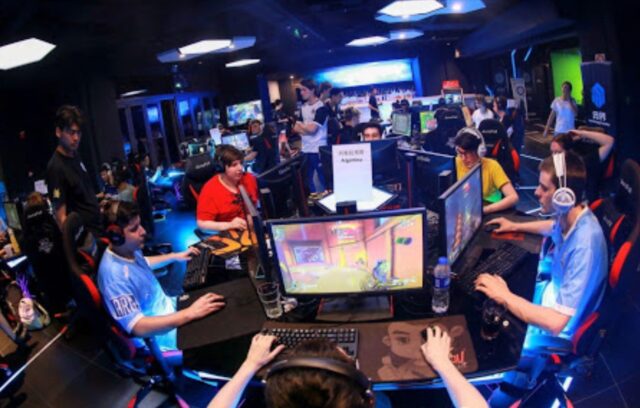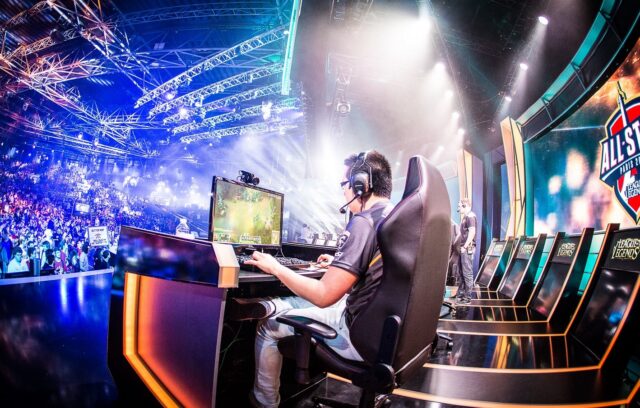
Many gamblers join online casinos to challenge their luck. To end up in a winning position, they need to know how to manage the gaming bank, keep track of their budget, and stick to a certain strategy. These can be quite tiring. Searching for alternative gambling trends is a good alternative these days. How about esports betting instead of sports betting?
Many bookmakers operate in the esports betting industry, bringing competitive odds, incentives, and offers that appeal to fans. By 2024, esports events have already attracted millions of people worldwide. And this trend is going to get stronger with each upcoming year. Let’s make your expectations straight!
Managing Large Volumes of Information
You can now have access to the most updated information regarding esports. The data collected by Big Data technology is processed by specialists. So you can prepare yourself for the next esports event. Will you follow it online or at the stadium? You have both options to consider.
Hundreds of matches and tournaments attract millions of people around a year. Their audience is expanding all the time.

CS: GO Status of the Most Popular Esports
All signs demonstrate that CS: GO will tend to reign supreme in the betting world. More and more players and teams are committing to this video game. A lot of bettors decide to make a profit with it. Many of them have succeeded in this. Use CS: GO to gain attention from the gambling community, on gambling sites like https://cover.gg/.
Increase of Automatic Bets
Online gamblers like making spontaneous predictions, despite all dangers. To protect their savings, they often use automatic bets. Fixed rates are established by betting experts who stick to rule-based strategies. They are then automated throughout the whole process.
Automated betting can be stressful from time to time. You can lose a lot of money. If all goes well, bets on undetermined odds turn out to be very beneficial.

Blockchain and the NFT
Have you ever heard about “a non-fungible token” or “NFT”? It has become a huge thing lately. Digital versions of original art, skins for video games, virtual apparel to be checked with special glasses or headphones, and virtual residences stopped being something unimaginable. Moreover, these new assets are widely used in different spheres of life, including the esports betting sector.
Each NFT has a specific identification that is maintained in a blockchain-protected digital ledger. It can’t be copied, hacked, or replicated. Tokens are already integrated into real financial operations. So they have proved to be perfect for esports betting as well.
Professional esports organizations have already signed agreements with esports betting providers to reach collectible files like player names, photographs, and photos. All content can be processed in different ways – purchased, sold, and traded. For example, Wyoming has processed a law that allows people to use cryptocurrencies like Bitcoin and Ethereum to manage their esports betting accounts.
Esports bookmakers also have to adjust their work to the crypto trend. For example, The League of Stakes was the first online bookmaker in the NFT market. It used a Golden Jackpot as the primary token on the crypto market. A large-scale intention for the League of Stakes is to invite as many people as possible. This is why the League of Betting was developed for betting fans.

The Future of Esports
Esports has reached its peak over the last decades. The esports audience has also increased drastically. Networks like Twitch and YouTube have also contributed to the continuous formation of the given trend. These networks have helped the gambling community to build a large and loyal fan base for video games and online esports events.
Millions of people are known to follow esports events, with many of them claiming huge rewards. They have made special areas on their websites to provide fans with a convenient betting environment so that they can benefit from this trend.
When it comes to esports betting, the trends are going to be more diverse and more influential. The popularity of esports betting growth so more people discover the love of esports.
Some consider esports an ordinary youth hobby. Because of this stable stereotype, competitive gaming remains somewhere on the outskirts of collective consciousness. However, facts and statistics show that the industry is developing rapidly and can already compete with some traditional sports disciplines. For example, in 2024, the industry market exceeded a billion dollars. According to Statista, by 2025, the industry will at least double this figure. ESports is not just a community of 20-year-old students who have fun playing video games. The sector has a 474-millionth audience age from 18 to 34 years.
There is everything in the world of esports so that it can develop: an adult and solvent esports audience, companies that create new game disciplines, tournaments at which players can earn and become world -wide stars, and tournament organizers creating unique e -sports competitions.
Moreover, as the pandemic showed, even during the locaun, e-sports can continue to work, completely moving into online. For example, the Weplay Holding tournament operator conducted Weplay Animajor, who, even without the participation of the “living” public, became the most viewed major in the history of Dota Pro Circuit (DPC), gaining 37,351,630 hours of viewing.

What is esports? What is esports? Photo: Weplay Holding Before plunging into the industry, let’s deal with the definition of the concept of esports. ESTRISSISS, also known as electronic sports, are video games in which individual people (e -sportsmen) or esports teams participate in world tournaments to get the title of champions.
Therefore, not every game is an e-sports discipline, but every discipline is a computer game. To become an e-sports discipline, the game must be competitive, provide a multi -user mode and establish competition rules. The most popular genres of esports games for professional and amateur matches: Multipoling combat online Arena (MOBA) First -person shooters (FPS) Fiting games Sport games Mobile games Real Strategies (RTS) The history of e -sports games The history of esports games.
Computer games gave people the opportunity to compete with each other in virtual reality, earn points and challenge those who want to beat their record. The first e -sports tournament is the competition in Spacewar!. The event, held in 1972 in the artificial intelligence laboratory of Stanford University, was attended by 24 players who fought for the title of champion and prize pool in the form of an annual subscription to Rolling Stone magazine. In the 90s, computer clubs began to hold local tournaments to attract new customers.
Schoolchildren, adolescents and even students got the opportunity to earn extra money at their hobbies, and even prove that they are the best players. The breakthrough for the esports industry was The International 2011 tournament from Valve with a total prize fund of a million dollars. At that time, these were the largest prizes among all esports events, so many are associated with the beginning of a new era in esports.
Competitive video games: structure Competitive video games: structure. Photo: Weplay Holding Publishers This, perhaps, is the main difference between traditional sports and e -sports. Not a single sport belongs to a single owner, while in esports there are publishers who release games. For example, Valve owns Dota 2 and Counter-Strike: Global Offensive, Riot Games is responsible for a series of League of Legends championships and so on. The publisher can sell the game or simply stop its support, which will mean the destruction of all esports discipline. All intellectual property rights to the game belong to its publishers.

This means that it is they who dictate the rules regarding who, where and when can play their game professionally. Therefore, publishers can create leagues: for example, Valve has an esports league on Dota 2, Dota Pro Circuit (DPC), and Blizzard Entertainment owns Overwatch League. Pay attention: publishers can only affect discipline, and not the genre in general.
For example, the Shuther genre includes several disciplines like CS: GO or Valorant from different publishers. Each publisher has the right to dispose of his game at his discretion.









